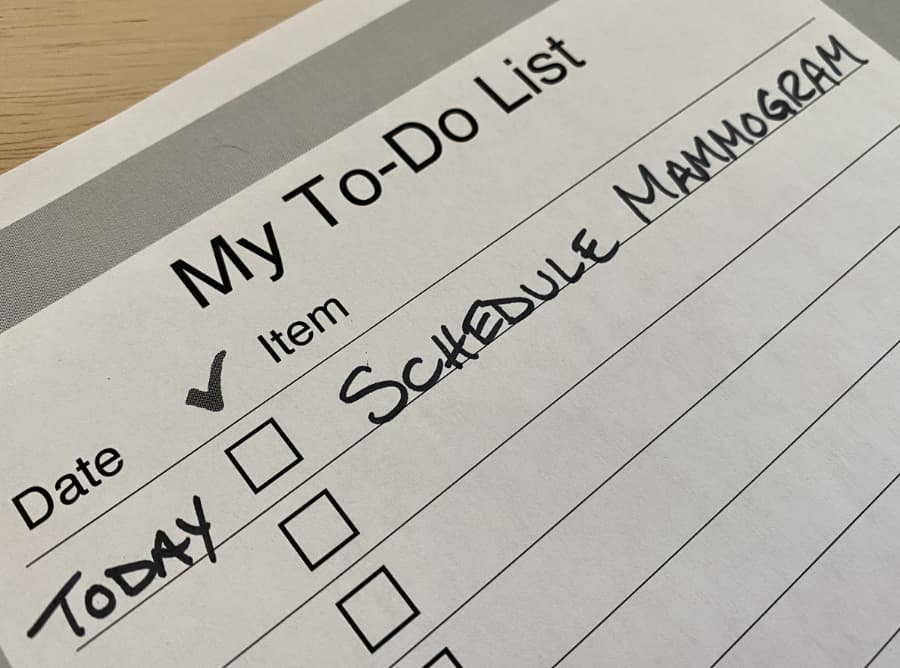Routine mammograms are a vital aspect of women’s health, as they reduce the risks associated with breast cancer. Since this risk increases as women get older, physicians recommend getting a baseline mammogram first and then continuing to have regular mammograms moving forward as a preventative measure. Richmond University Medical Center in Staten Island, NY, provided information to guide patients receiving their first mammogram.
What Is a Baseline Mammogram?
Baseline simply means the first time receiving a mammogram. According to the American Cancer Society, breast cancer is the second most common cancer among women in the United States after skin cancer and the second most common cause of cancer-related death for women, after lung cancer. Mammography is helpful in early detection and preventative care for breast cancer. There are a few different times when a woman should consider scheduling a baseline mammogram, each based on age. These times include:
- Women ages 40 to 44: Women between these ages should consider setting up their baseline mammogram, as the risks of breast cancer increase around age 40.
- Women ages 45 to 54: By age 45, women who have yet to schedule their first mammogram should seek one as soon as possible. Women between ages 45 and 54 are at the highest risk for breast cancer and should have a mammogram annually during these ages.
- Younger women with family history: Young women under age 40 who have a family past of breast cancer should begin getting mammograms earlier. Patients should discuss their family history with their physicians to figure out a good age for their first mammogram.
Regular and timely screenings for breast and women’s health are extremely important practices. Mammograms are considered the international gold standard for detecting breast cancer during its early stages. Mammograms can find lumps in the breast two to three years before a patient or even a physician can feel them.
Understanding the Risk Factors for Breast Cancer
Aside from age and family history, there are a few other indicators of breast cancer that women should pay attention to. In many cases, these risk factors do not mean a person has breast cancer. However, women who fit in the following categories should make getting a baseline mammogram a priority:
- Are over 50: Most breast cancer cases occur in women over the age of 50.
- Have an over-active reproductive history: Starting menstrual cycles before age 12 and beginning menopause after age 55 could expose women to hormones longer, raising their risk of getting breast cancer.
- Have a family history of breast or ovarian cancer: A woman’s risk for breast cancer is higher if her mother, sister, daughter, or another family member on either her mother’s or father’s side had breast or ovarian cancer.
- Had radiation therapy previously: Young women who may have had radiation therapy to the chest or breasts for treatment of diseases, such as Hodgkin’s lymphoma, before age 30 are at a higher risk for breast cancer.
- Struggle with obesity after menopause: Women who are obese or overweight, especially after menopause, may have an elevated risk of developing breast cancer.
- Drink alcohol frequently: Studies have shown that a woman’s risk for breast cancer increases if she begins to drink heavier amounts of alcohol.
Some breast cancer risks are preventable, while others are not. In any case, it is wise for patients to practice breast cancer prevention and to schedule their baseline mammograms at age 40. Women under 40 with any of these risk factors should also begin preparing for their mammogram. Being proactive may help a patient avoid developing breast cancer and undergoing extensive treatment later on.
Schedule a Baseline Mammogram Today
Patients in or near Staten Island, NY, who wish to set up a baseline mammogram appointment should turn to Richmond University Medical Center for assistance. The hospital has a dedicated Breast and Women’s Center, located at 1161 Victory Blvd., in Staten Island. Our medical team at the center, which include board certified physicians, provide support from examination through cancer survivorship. For more information go to https://www.rumcsi.org/locations/breast-and-womens-center/. To schedule an appointment, call 718-818-1161.




